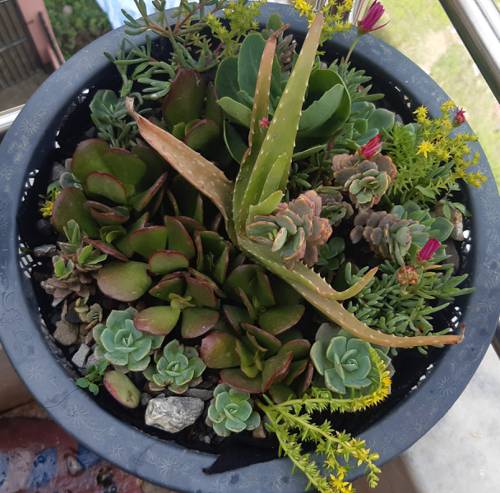
FAQ About Indoor Plants for Improving Sleep Quality

How do indoor plants improve sleep quality?
Indoor plants improve sleep quality primarily through air purification and their natural calming effects. Plants like the snake plant, spider plant, and peace lily can help filter out toxins such as formaldehyde and benzene from the air, creating a healthier indoor environment. Additionally, plants like lavender and jasmine have a relaxing scent that can help reduce stress and anxiety, contributing to better sleep. The presence of greenery also promotes a sense of well-being which further aids relaxation.

Which plants are best for improving sleep quality?
Some of the best plants for improving sleep quality include lavender, jasmine, aloe vera, spider plant, snake plant, and peace lily. Lavender and jasmine are known for their soothing scents, which can help reduce anxiety and improve sleep. Aloe vera and snake plants are effective at enhancing indoor air quality by releasing oxygen at night, which can promote more restful sleep. Spider plants and peace lilies help purify the air by removing pollutants.

Can lavender really help you sleep better?
Yes, lavender is known for its ability to promote better sleep. The aroma of lavender can lower heart rate, blood pressure, and stress levels, helping to relax the body and mind. This makes it easier to fall asleep and improves sleep quality. Several studies have shown that lavender oil and plants can help with insomnia and anxiety, making it a popular choice for bedrooms.

Do indoor plants help with air purification?
Indoor plants can indeed aid in air purification. They can remove toxins like formaldehyde, benzene, and ammonia from the air, thanks to their natural metabolic processes. NASA's Clean Air Study found that certain plants, such as spider plants, peace lilies, and snake plants, are especially effective in filtering indoor air. While they aren't a substitute for good ventilation, they can contribute to a cleaner indoor environment.

Is it safe to have plants in the bedroom?
Yes, it is generally safe to have plants in the bedroom. While some people worry about plants releasing carbon dioxide at night, the amount is minimal and not harmful to humans. In fact, certain plants like snake plants and aloe vera actually release oxygen at night, making them ideal for bedrooms. As long as you maintain the plants properly, they are a safe and beneficial addition to your sleeping environment.

How many plants should I have in my bedroom for sleep benefits?
The number of plants you should have in your bedroom depends on the size of the room and the specific plants used. Generally, having two to four medium-sized plants can be sufficient for a small bedroom to improve air quality and provide calming effects. It's important to balance plant size and number to avoid overcrowding, which could reduce airflow.

Do plants reduce stress and anxiety?
Yes, many indoor plants can help reduce stress and anxiety. The presence of greenery can be calming, and some plants like lavender and jasmine are especially noted for their stress-reducing properties due to their pleasant fragrances. Additionally, caring for plants can be a meditative activity that helps reduce anxiety and improve mental well-being.

Can aloe vera improve sleep?
Aloe vera is known for its air-purifying abilities and its reputation as a "oxygen bomb" at night. It releases oxygen during the nighttime, which can enhance the air quality in your bedroom and promote more restful sleep. While it doesn't have a noticeable fragrance like lavender or jasmine, its ability to purify air makes it a beneficial plant for improving sleep.

Why is the snake plant recommended for bedrooms?
The snake plant is recommended for bedrooms because it is one of the few plants that continue to convert carbon dioxide to oxygen at night, thus improving the air quality while you sleep. It is also very low maintenance and can thrive in low light, making it perfect for bedroom environments. Its ability to filter out toxins such as formaldehyde and benzene further adds to its sleep-enhancing benefits.

Are there any studies supporting the idea that plants improve sleep quality?
While there are limited studies specifically on the impact of plants on sleep quality, there is research supporting the air-purifying effects of plants, such as NASA's Clean Air Study. Additionally, research on aromatherapy shows that fragrances from plants like lavender and jasmine can reduce anxiety and improve sleep. These findings suggest that the presence of certain plants can contribute to a better sleep environment, although further direct studies on sleep quality are needed.

How do spider plants improve air quality?
Spider plants are effective at improving air quality as they can remove pollutants such as formaldehyde and xylene from the air. These plants also absorb carbon monoxide, making them excellent for enhancing indoor air. In addition to filtering out toxins, spider plants are easy to care for and can thrive in low light, making them a popular choice for indoor environments.

Can jasmine plants really reduce anxiety?
Yes, jasmine plants are known for their anxiety-reducing properties. The fragrance of jasmine has been shown in studies to promote relaxation and improve mood, which can help alleviate anxiety. This makes jasmine an excellent plant for creating a calm and soothing environment, especially in the bedroom where relaxation is key to improving sleep quality.

Do peace lilies help with humidity in a room?
Peace lilies can indeed help to increase humidity in a room. These plants release moisture into the air as part of their natural transpiration process, which can be beneficial in dry environments. Maintaining optimal humidity levels helps keep respiratory issues at bay and creates a more comfortable sleeping environment, thus indirectly contributing to improved sleep quality.

How should I care for lavender indoors to improve sleep?
To care for lavender indoors, place it in a location that receives plenty of sunlight, as lavender thrives in bright light. Ensure that the soil is well-draining and water the plant only when the top inch of soil is dry, as overwatering can harm it. Regular pruning can help maintain its shape and encourage new growth. By maintaining lavender properly, you can enjoy its sleep-enhancing fragrance to its fullest.

Do plants actually emit oxygen at night?
While most plants primarily emit oxygen during the day through photosynthesis, certain plants like the snake plant and aloe vera release oxygen at night. This is due to a process called Crassulacean Acid Metabolism (CAM), which allows these plants to open their stomata at night to minimize water loss. This unique ability makes them excellent choices for the bedroom to improve air quality while you sleep.

Can indoor plants affect allergies negatively?
For most people, indoor plants are beneficial and do not affect allergies negatively. However, certain individuals may have allergic reactions to specific plant spores or pollen. It's important to choose plants that are known to be hypoallergenic, such as snake plants or peace lilies, and ensure they are kept clean and free from dust. Keeping plants well-watered and healthy can also reduce the risk of mold growth, which could trigger allergies.

What is the best location for a snake plant in a bedroom?
The best location for a snake plant in a bedroom is where it can receive indirect light, such as by a window covered with a sheer curtain. Snake plants are quite adaptable and can tolerate low light conditions, so they can also be placed in dimly lit corners. It's important to avoid overwatering, so choose a spot with good airflow where the plant won't retain excess moisture.

Are there any specific times to water indoor plants like aloe vera in the bedroom?
You should water aloe vera about once every three weeks, or when the top few inches of soil are dry to the touch. Aloe vera holds a lot of water in its leaves, meaning it doesn't need frequent watering. To avoid overwatering, which could harm the plant, ensure the pot has drainage holes and empty any excess water from the saucer within 30 minutes after watering.

Can caring for plants improve mental health?
Caring for plants can indeed benefit mental health. The act of nurturing plants can be rewarding and therapeutic, helping to reduce stress and anxiety. It also provides a sense of accomplishment and can improve concentration and memory. Additionally, being in an environment with plants can foster feelings of calm and relaxation, contributing to overall mental well-being.

Should I choose scented or unscented plants for improving sleep?
Choosing between scented or unscented plants depends on personal preference and sensitivity to fragrances. Scented plants like lavender and jasmine can enhance relaxation and reduce anxiety with their soothing aromas. However, some people may find strong scents overwhelming or irritating. In such cases, unscented plants like snake plants and peace lilies, known for their air purifying abilities, are great alternatives that still promote a restful environment.
